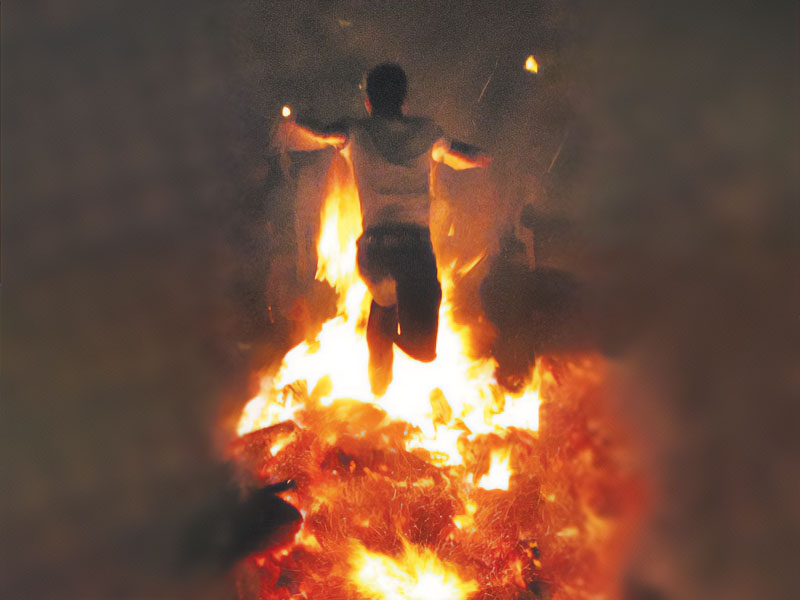Pentecost in Morocco: A Summer Celebration During A Busy Season
Issue 58

Dr Ahmad Al-Warith
Moroccans, particularly farmers, continue to look forward to the celebration of Pentecost. It is held on July 7, in the midst of harvest activity, throughout the summer. The most significant components of the celebration include lighting a fire, having water fights (splashing water on each other), and making meals from the grains of the season. They follow in the footsteps of their forefathers, who celebrated this event from an early era in the history of Islam in Morocco, as it is a peasant holiday known as Pentecost, or the Festival. Rather, as recent research has shown, Pentecost is part of an ancient culture that goes far back in time, beyond the celebrations of Muslims, Christians, and Jews, and is closely linked to the agricultural rituals that were followed by the ancient Berbers, like other primitive peoples, to celebrate crop maturity and carry out a set of rituals that ensure the preservation of crops, so they will not be harmed after storage, and the next agricultural season will be fruitful.
The following are the highlights of this paper:
First and foremost, Pentecost is an ancient solar holiday. Its rituals are closely linked to the activities of agricultural societies, so it is correct to call it the festival of agricultural rituals. It was cared for by farmers in Morocco alongside "Al Hakouz," for example, and is still popular today, despite the loss of many rituals.
Second, Pentecost marks the end of an agricultural season and is a celebration of the land and its ongoing generosity. As a result, the occasion was primarily an opportunity to express gratitude for the ripening of the crops, but it also represents a precautionary ritual, in order to avoid the disastrous results that could occur during the harvest, which leads us to the concept of fear of nature's secrets and its might.
Third, the ceremonies of celebration invoke fire and its ashes, water, and nutrition, all of which are significant components impacting all aspects of existence. Despite changes in situations and mentalities, the continuous celebration of it and other events demonstrates that nature continues to have an impact on man. With the exception of a few in the countryside distant from the center, the celebration of Pentecost has lost its luster among Moroccans today, but it remains powerfully present in the national consciousness, particularly in the houses of farmers.




































































